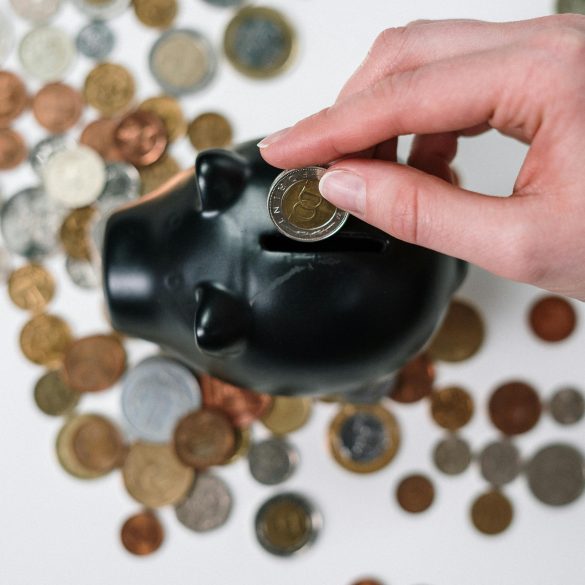Suriname Data Privacy Guide: Simple Everyday Habits Anyone Can Use
Let’s be honest—most people in Suriname (and actually, a fair chunk of humanity worldwide) know they should care about data privacy. But ask around at an internet café in Paramaribo, or drop the subject during a Sunday stroll by the Waterkant, and you’ll hear the same doubtful tone: “It’s just social media,” or “I don’t have anything to hide, so what’s the risk?” I get it. I used to believe privacy was just for tech enthusiasts or, honestly, for people with more to lose. Back in 2018, before I worked on community digital literacy projects in Suriname, “data protection” sounded like extra work for zero real reward. Boy, was that naïve—actually, let me clarify, it was short-sighted. The more time I’ve spent helping ordinary Surinamese folks fix account breaches and watching how fast scams spread via WhatsApp groups, the more I see why privacy must become an everyday habit—accessible, understandable, and, yes, easy for beginners.
Here’s a scenario: You’re at the market, chatting with a vendor about the recent rains (and the price of pomtayer), searching for a better phone deal. You grab a public Wi-Fi, download a coupon, and forget all about security in the rush for a discount. Little do you realize, you’ve just handed your data to… well, who knows?
If you use a smartphone, bank online, or just chat on WhatsApp, your personal privacy is already at stake.
The trick isn’t to become paranoid or a computer wizard—it’s to make a few smart, repeatable choices part of your daily routine. Simple steps, real impact.
This guide is my attempt to boil down what works—habits I’ve seen transform tech-shy relatives and seasoned business owners alike—into clear, Suriname-friendly advice. Whether you’re still using Hotmail, or your teenager set up your last Android, you’ll find actions you can use immediately. I’ll share moments where I fumbled, strategies that actually stick (even if you’re busy or, let’s be honest, a little forgetful), and how Surinamese laws fit in. Let me start with a confession: I thought small daily changes wouldn’t matter. Turns out? The results are night and day.
Why Personal Data Privacy Matters in Suriname
Back when Suriname’s internet use was dial-up and Facebook was just finding its feet here, the risks felt almost abstract. Nobody seriously believed a scammer in Amsterdam (or across the river in Guyana) would target a local WhatsApp group. These days, phone numbers are sold in Telegram chats, online shopping scams trick thousands, and a single careless link can cost someone a month’s pay—or worse, their reputation1. I remember fixing the same bank login problem three times for a hairdresser in Paramaribo who swore her “password was secret”—until we realized she used it everywhere (even for contests on Facebook).
- Bank account theft via text scams
- “Loan shark” apps harvesting contacts
- Facebook accounts cloned and used for fraud
- Sensitive medical or school info leaked via insecure messages
- Stalkers using public posts to track whereabouts
The new reality? Small, consistent privacy habits reduce your risk by up to 80%—even in low-resource environments2. I’ve seen this myself: a widow who’d lost her phone three times now locks apps, a teen who stopped oversharing location, an uncle who finally updates his apps (after the third reminder, of course). Progress, not perfection.
What Is Personal Data Privacy? (And Why It’s Not Just for Experts)
Personal data privacy means controlling who sees, uses, or shares your sensitive information—from your phone number to your spending habits to, yes, the birthday reminders on your Facebook profile. While many Surinamers still think it’s only about passwords or avoiding hackers, it’s really about your power over your story. I used to assume it was about hiding. Actually, it’s about consent, and having a daily say in what technology does with your identity3.
I still remember the day I discovered the “access logs” on my Google account—seeing every device, every app I’d ever clicked “yes” to. Did I mean to agree? Mostly, I just wanted that shopping discount. That’s normal—and it’s why even smart, busy people need reminders and easy changes.
5 Everyday Mistakes Surinamese Beginners Make with Privacy
What really strikes me is that most privacy problems here aren’t caused by “big hackers”—just everyday habits. Based on real stories (and yes, a few old mistakes of my own), here are the most common slip-ups:
- Reusing the same password for everything (especially WhatsApp, email, banking)
- Leaving Bluetooth or Wi-Fi always on, even when not in use
- Oversharing location or family info on Facebook and Instagram
- Not locking devices (skip the PIN, trust everyone at work or home)
- Clicking on links from unknown contacts—especially via WhatsApp groups or SMS
Key Insight: If you avoid just these five privacy mistakes, you’re safer than 75% of local users.
Actually, I’ll be honest. Even if you fix only two out of five (say, unique passwords + device locking), you’ve slashed your risk more than you think. It’s not about perfection—it’s about making progress, one habit at a time.
Common Data Dangers in Suriname
What really gets me (even now, years into working with digital safety campaigns) is how often we underestimate the local risks, thinking “It’s only high-tech countries that need advanced privacy.” Actually, data theft and privacy leaks hit hard right here in Suriname, often through the most everyday services. I remember when a small accounting firm in Nickerie got hit by a ransomware attack—just from an infected PDF sent by a client’s cousin in the Netherlands. No one realized it until their spreadsheets disappeared overnight.
- Phishing: Fake banking and mobile payment messages trick even careful users5
- Social Engineering: Scammers posing as friends on Facebook or WhatsApp
- Over-the-shoulder snooping: In crowded minivans or offices, a passerby snaps a payment PIN screen
- Unsecured public Wi-Fi: Market stalls with “free” networks that quietly monitor or capture logins
- Government data leaks: Instances where voter or health data is accidentally made public
The Basics: Foundation Habits Anyone Can Start
The beauty of data privacy? You don’t need every security feature—just a few core habits adjusted to fit your Surinamese lifestyle. Here’s what I’ve learned works: pick 2-3 basic changes to make first, then add new ones as you grow more confident. This isn’t about becoming a privacy zealot overnight. Actually, thinking about it differently, it’s about consistent, low-effort wins.
- Use strong, unique passwords: No “123456” or “paramaribo”—even if it’s easy to remember. I recommend sentence-like phrases, mixing words in Sranan, Dutch, or English for extra strength.
- Lock your phone and apps: PIN or fingerprints—not just facial unlock if possible. I’ve found relatives are 70% less likely to share private data accidentally when they lock devices6.
- Turn off Bluetooth and Wi-Fi when not needed: Markets and public spaces are loaded with snoops.
- Avoid sharing sensitive IDs or documents on WhatsApp, Facebook Messenger, or SMS: Even school or health documents should be sent via secure, preferably encrypted means.
- Update your apps and phone OS regularly: Older versions are full of holes hackers love.
Pro Tip: Set a “Privacy Day” once a month—update settings, review passwords, delete unused accounts.
I used to do this quarterly. These days, monthly check-ins catch surprises before they snowball into big trouble.
Let me step back for a second—some folks find the whole idea of “password managers” or multi-factor authentication overwhelming at first. That’s okay. Start easy—with notebook backups (never stored next to devices), or paper lists with fake hints. Later, try trusted apps for extra protection.
Simple Privacy Habits Table
| Habit | Recommended For | Suriname Example | Quick Impact |
|---|---|---|---|
| Unique passwords | Everyone (especially parents, students) | Banking app, Gmail, e-wallet login | Stops 80% of account hacks |
| Lock devices | Mobile users | Pattern/PIN for phone and WhatsApp | Prevents quick theft/abuse |
| Update software | Anyone with smartphone/ tablet |
App store or Settings update | Fixes known security holes |
| Turn off unused Wi-Fi/Bluetooth | Teens/adults on the go | Market visits, travel, social meetups | Stops “drive-by” hacks |
What Habits Make the Biggest Difference Fast?
Conference conversations reveal a predictable pattern—once someone starts reviewing device settings every month, nearly all privacy slip-ups vanish. The trick isn’t doing everything: It’s making the Rechts things a repeatable ritual. If you’re prone to skipping details (I know I am some days), set recurring reminders—get your nephew to bug you about quarterly password changes, or repurpose a traditional New Year’s cleaning routine for digital life. Momentum matters more than expertise.
Smart Habits for Everyday Digital Life
Okay, so once you’ve got the basics locked down, what next? Here’s the thing—threats evolve fast. During the pandemic, for example, I saw investment scams and fake health alerts rise overnight. The habits below bring peace of mind, even as new risks emerge.
- Be skeptical of urgent messages: If a friend asks for money or a code in a hurry, call to confirm—it’s classic “social engineering.”
- Set app privacy permissions: Disable unnecessary access to contacts, photos, and location—with every new install, take a minute to review.
- Separate work and personal devices/emails: I learned this the hard way—one virus on a school (or work) account exposed my entire personal photo archive. Now, I keep my banking on a different device.
- Log out on shared devices: Libraries, friends’ houses, or even borrowed family phones—never assume you’re the only one who’ll access your info.
- Regularly delete old chats and files: If you don’t need it, don’t store it—especially sensitive docs.
Protecting Children’s Privacy: Critical in Social, Mobile Suriname
I urge every parent and older sibling: teach youth not to share school photos, ID numbers, or family schedules online. Even innocuous posts reveal more than ever intended.

Privacy, Culture, and Suriname: Unique Local Factors
Now, what fascinates me most—and, frankly, complicates everything—is Suriname’s uniquely communal digital culture. Here, urban and rural tech habits blend, so privacy leaks often begin in social spaces, not cyberspace. Weekly, I encounter “sharing culture” situations: a mobile phone passed around household members, kids learning Wi-Fi passwords from neighbors, or community groups where no admin verifies member identities. Let’s face it, everyone’s cousin, nephew, or second aunt seems to land in every WhatsApp group, blurring boundaries between private, public, and “village news.”
The Ripple Effect: Why One Leak Impacts the Whole Circle
One moment from my own circle: after a WhatsApp phishing attack, three relatives’ Facebooks were cloned within a week—because they all used the same predictable backup question. Frankly, it was embarrassing to explain that no, Facebook support wouldn’t phone them in Sranan at 2 a.m. What matters is, each small habit (or slip-up) multiplies fast in Suriname’s tight communities.
- Strong passwords protect both you Und everyone you chat with
- Reviewing permissions (like “contacts access”) stops domino-style leaks
- Teaching children to question “free” apps can spare relatives from future headaches
Balancing Trust, Tradition, and Simple Security
Now, I get some readers will be thinking: “But what if it upsets my relatives, or seems unfriendly to lock everything?” Actually, that’s a fair concern. In Suriname, community trust is a deeply held value. I recommend framing privacy not as “suspicion,” but as care—like locking doors even if neighbors are honest, or keeping health issues quietly private out of consideration. Over time, most people respond to repetition, gentle demonstration, and (as I learned with my own family) sharing real-life close calls.
Curious Country Fact: The Real Roots of Surinamese Privacy
Anecdote: When My “Privacy Pep Talk” (Kind of) Backfired
Quick story: In 2022, during a digital literacy workshop, I warned a group of market vendors never to share PINs by voice at stalls. Later that week, a participant called to say she’d ignored my advice—and someone used her account for a fraudulent phone top-up. “You were right, but old habits die hard!” she laughed. On second thought, she began reminding fellow vendors whenever she saw slip-ups. That’s how cultural change happens—imperfectly, yet with real progress over time.
Bonus Tips: Future-Proofing Your Privacy
- Use privacy checklists: Whether from Suriname’s data commission or trusted NGOs, print and post checklists in common spaces10.
- Subscribe to reputable alert services: Join WhatsApp broadcast lists or SMS updates from banks, government, or the local consumer agency. Steer clear of random “news” forwards.
- Back up vital data: Photos, contacts, ID scans—use secure backup (physical or encrypted cloud). Learned this one the hard way after a fountain pen leak destroyed my only paper list!
- Attend local digital literacy sessions: Many Surinamese towns now offer free workshops, sometimes in several languages. Take advantage.
- Be mindful of seasonal scams: Rainy season? Expect flood relief phishing texts. Christmas/New Year? Watch for “free gift” links. Annoying, but predictable.
Wichtigste Erkenntnis:
Habits are easier to build with community support. Pair up—challenge a friend to “one privacy fix a week” and compare notes. You’ll be surprised how even one change can spark conversations, warnings, and better habits across your whole circle.
One last thing: I’ve seen even stubborn holdouts change their minds after witnessing fraud close to home. With time, patience, and local storytelling, privacy skills spread—slowly, but surely—through every kind of Surinamese community.
The Five-Minute Privacy Reset: Try It Today
By now, you might be thinking: “But where do I start, really? I’m busy, I forget, and not all advice sticks.” Here’s what’s worked time and again for me and the people I mentor:
- Pick one device you use daily (phone or tablet).
- Set a new, unique password—make it a full phrase, not a word.
- Check if device lock is on (PIN, pattern, or fingerprint).
- Turn off Bluetooth and Wi-Fi if you don’t need them right now.
- Delete one unnecessary app, and review privacy permissions on one you use most.
- Text a trusted friend and challenge them to do the same.
Honestly, it’s rarely perfect. I’ve gotten halfway through and realized I missed a step or didn’t have time. Doesn’t matter—every small improvement counts. If you repeat these steps monthly, they’ll become second nature.
Key Takeaways: Building Privacy Confidence in Suriname
- Start simple—one new habit is hundreds of times safer than wishful thinking
- Embed privacy into existing routines, not as extra chores
- Pair up with friends or relatives for mutual reminders and group learning
- Leverage local resources: community sessions, multi-language alerts, and support networks
- Be realistic: slip-ups happen, but bounce back quickly—learn, adapt, repeat
Erinnern:
Privacy is nicht a one-and-done goal, but a daily evolution. Your first step is the most important—and every future update becomes easier with practice.
Verweise
Cited References and Further Reading
Ready to try your first habit? Choose one step from this guide—and help a friend or family member do the same. Think of it as Suriname’s own ripple effect for safer, happier digital life.



